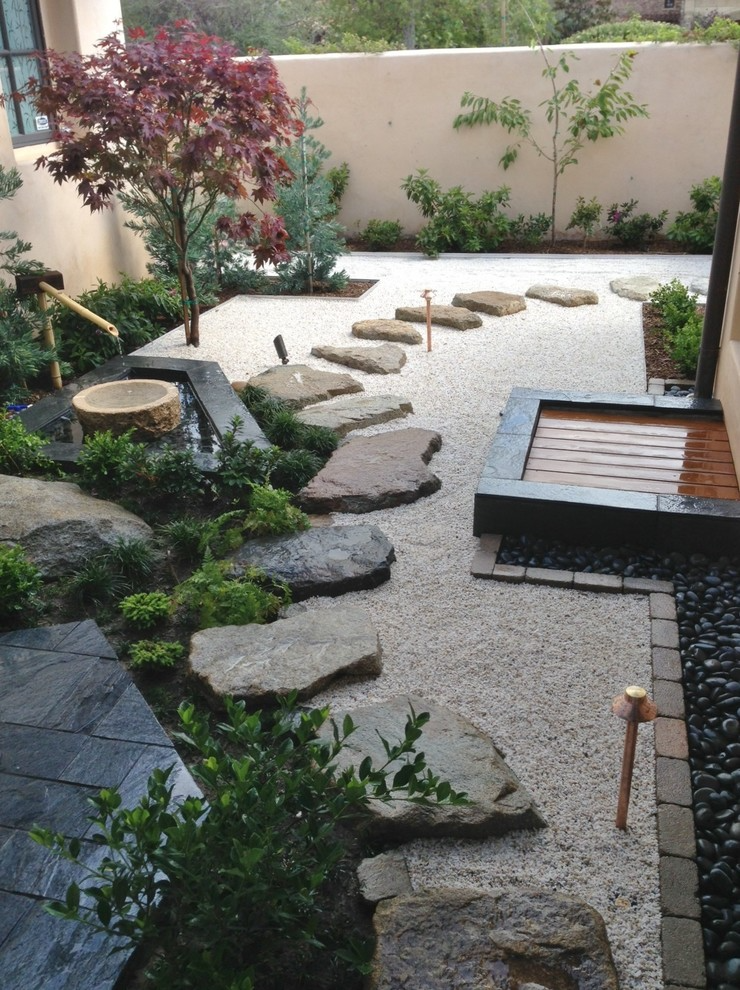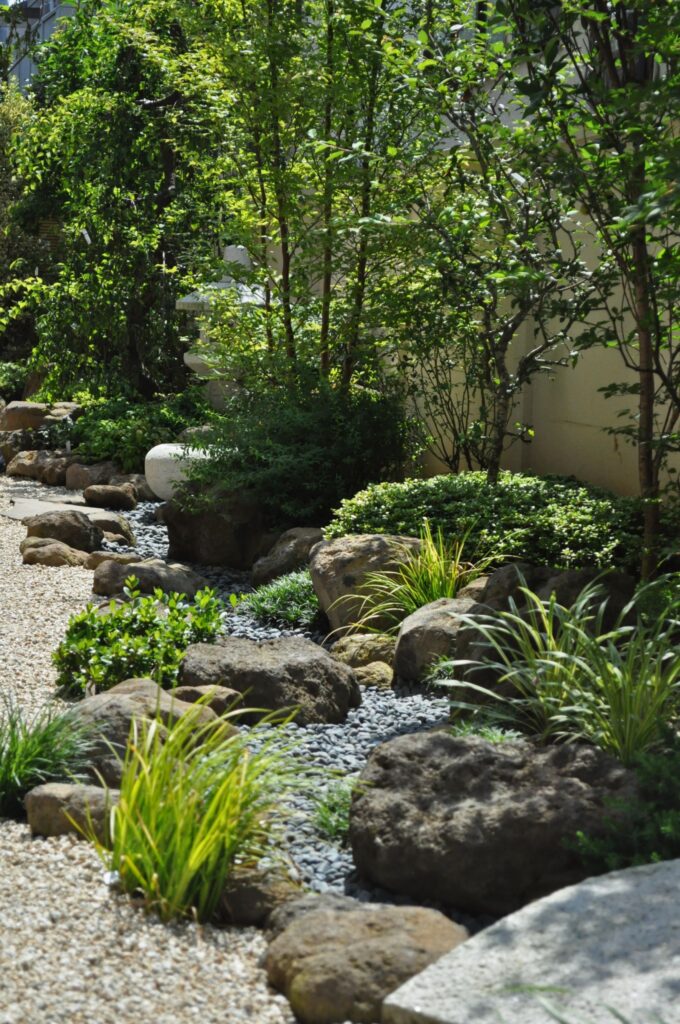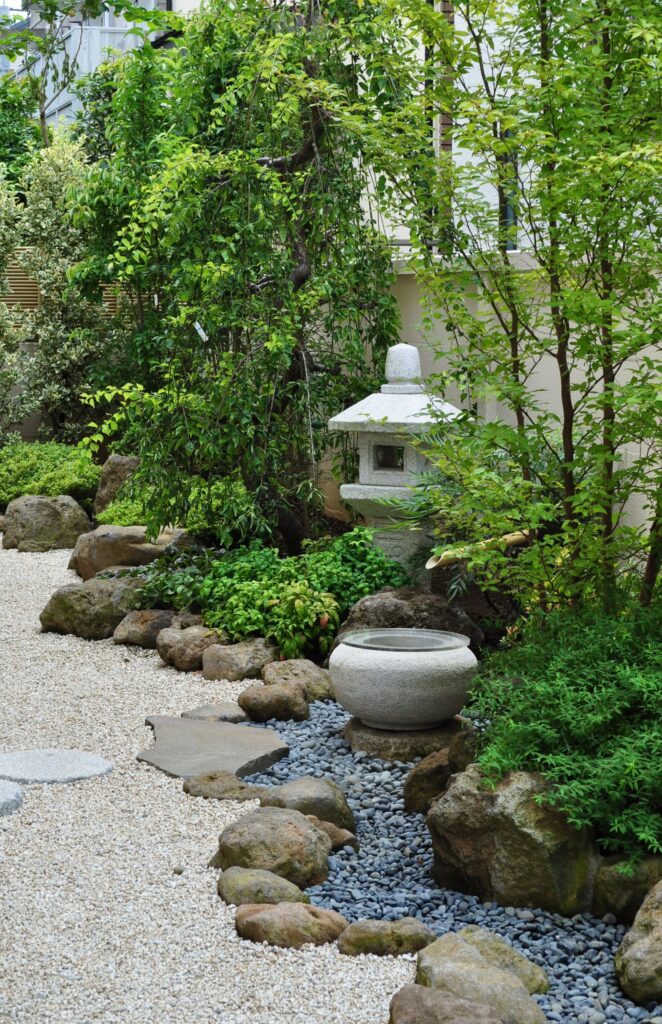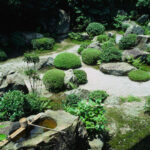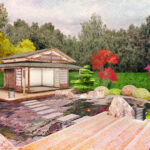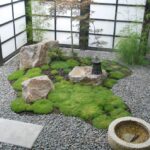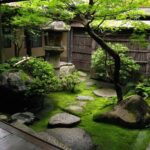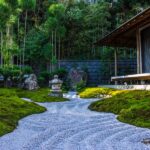Zen garden design is a deeply meditative and calming art form, originating in Japanese culture. These gardens are carefully planned outdoor spaces designed to promote relaxation, peace, and reflection. The design principles of a Zen garden focus on simplicity, minimalism, natural elements, and tranquility.
One key aspect of Zen garden design is the use of natural materials such as rocks, gravel, sand, and plants. These elements are carefully arranged to create a harmonious balance and sense of order in the garden. Rocks are often used to represent mountains and islands, while gravel or sand is raked into patterns that symbolize water or waves. The use of plants is kept to a minimum, with a focus on traditional Japanese plants like bonsai trees, bamboo, and moss.
The layout of a Zen garden is also carefully considered in its design. Paths are often meandering and indirect, encouraging visitors to slow down and take in the beauty of the garden at a leisurely pace. Stone lanterns and water features are common additions to Zen gardens, adding to the overall sense of tranquility and serenity.
Another important aspect of Zen garden design is the concept of wabi-sabi, which is the acceptance of imperfection and transience. This principle is reflected in the use of weathered and aged materials in the garden, such as moss-covered stones or aged wooden structures. These imperfections are embraced as part of the natural cycle of life, adding depth and character to the garden.
The practice of mindfulness is also central to the experience of a Zen garden. Visitors are encouraged to focus on the present moment, to be fully aware of their surroundings and to let go of distractions and worries. The simple and serene atmosphere of a Zen garden provides the ideal environment for meditation and contemplation.
Overall, Zen garden design is a beautiful and meaningful art form that promotes a sense of peace, harmony, and connection to nature. By incorporating elements of simplicity, natural beauty, and mindfulness, these gardens provide a sanctuary for relaxation and contemplation in our busy modern world.
 yishifashion Where Outdoor Dreams Become Reality
yishifashion Where Outdoor Dreams Become Reality
